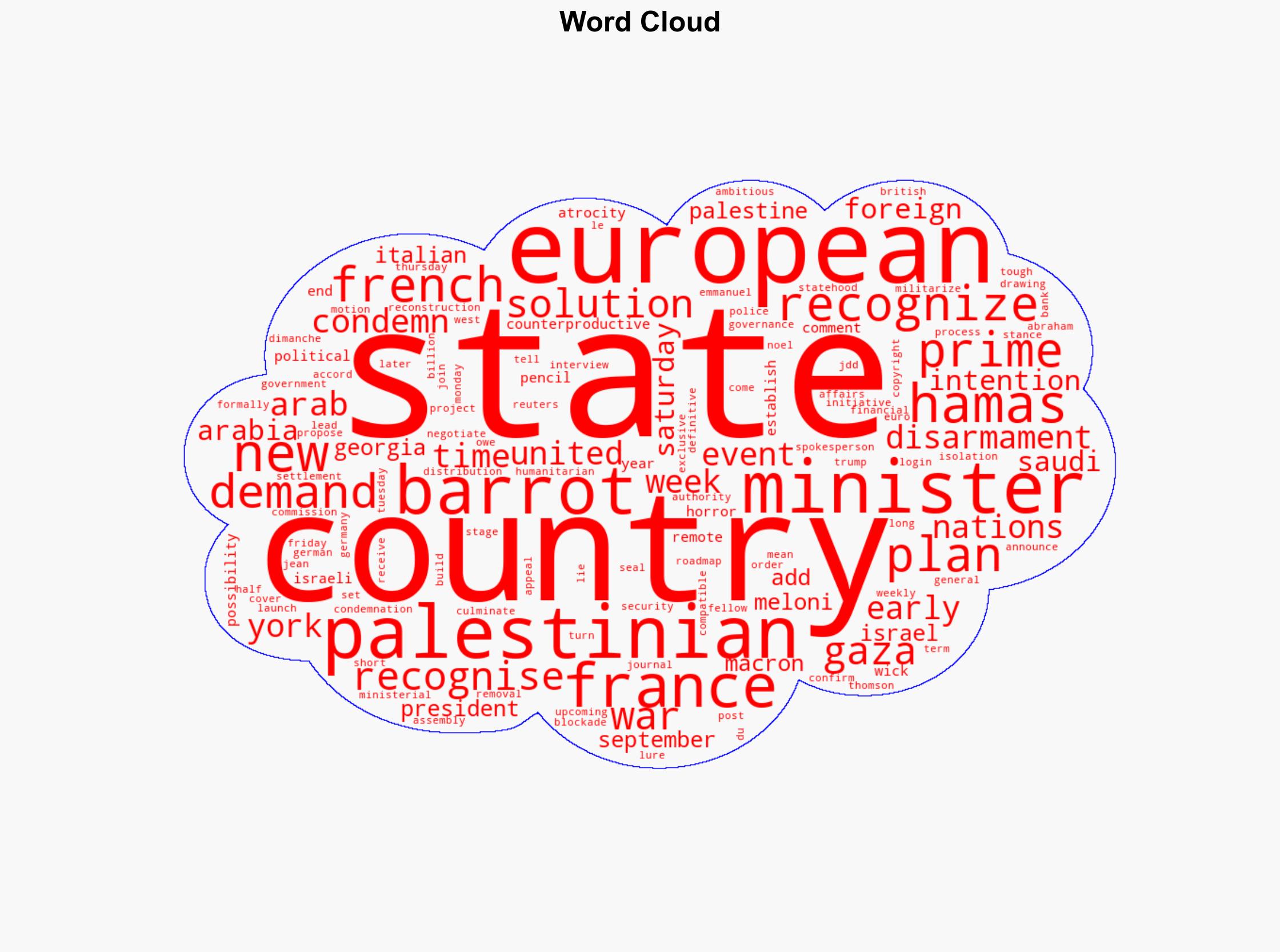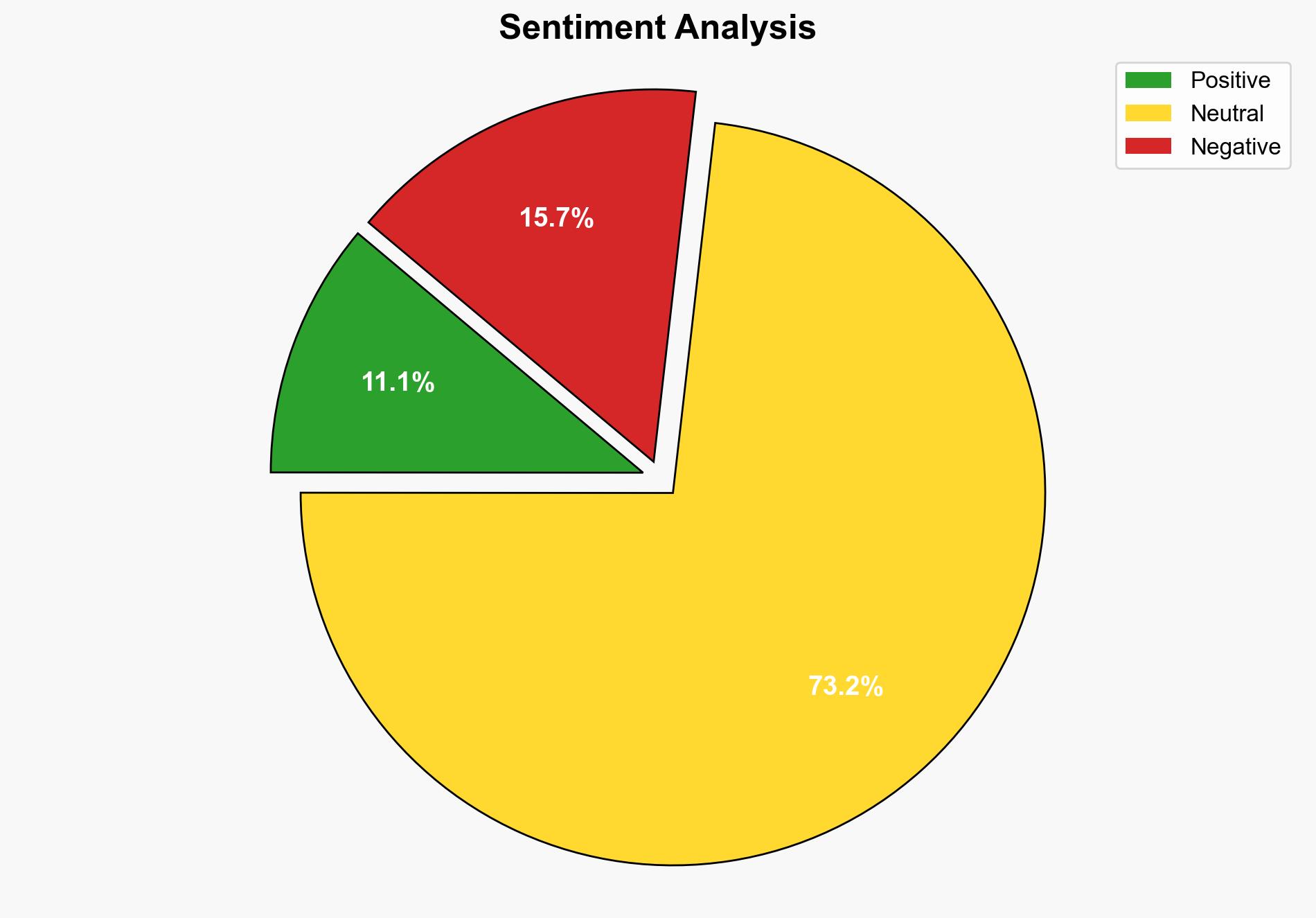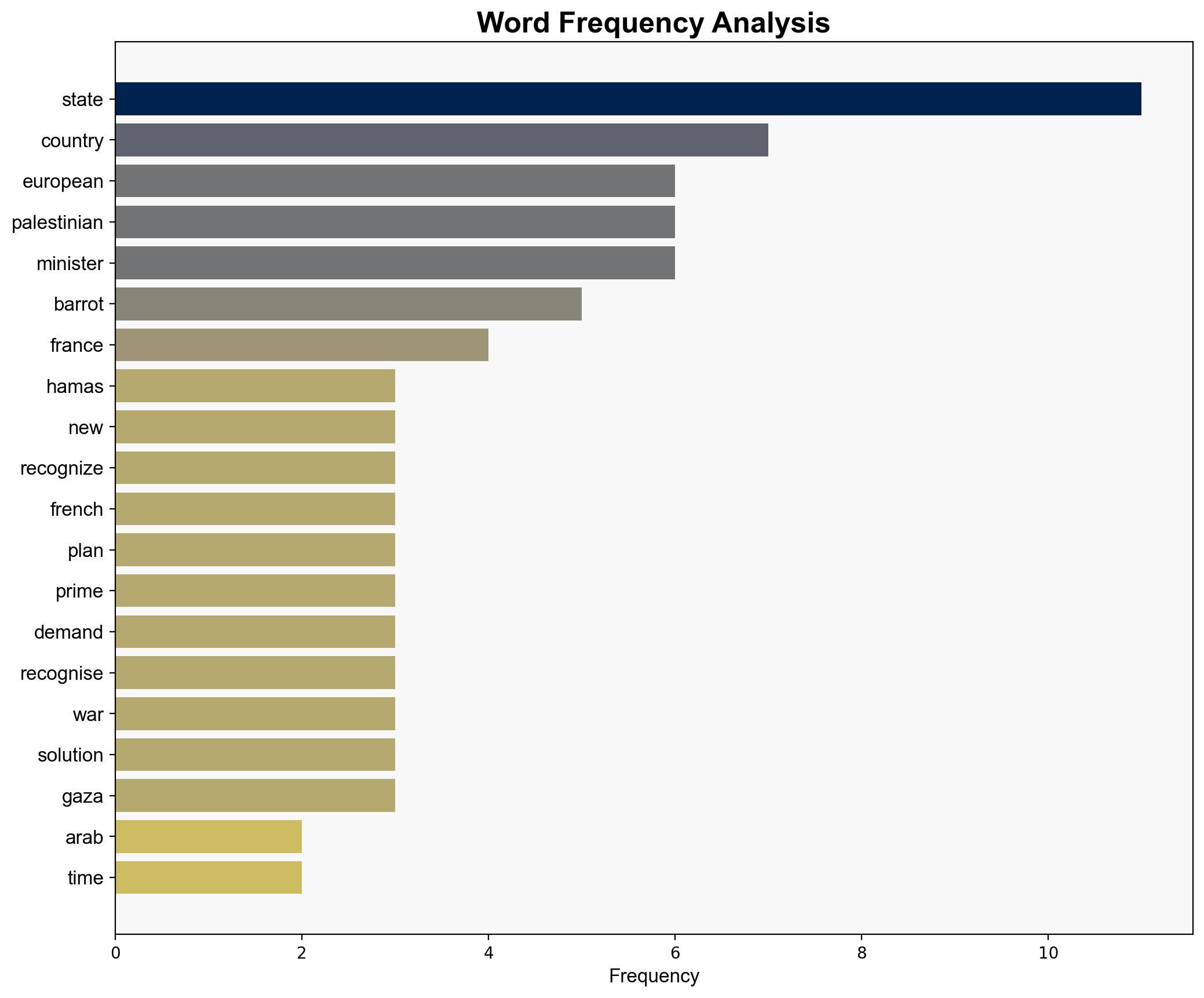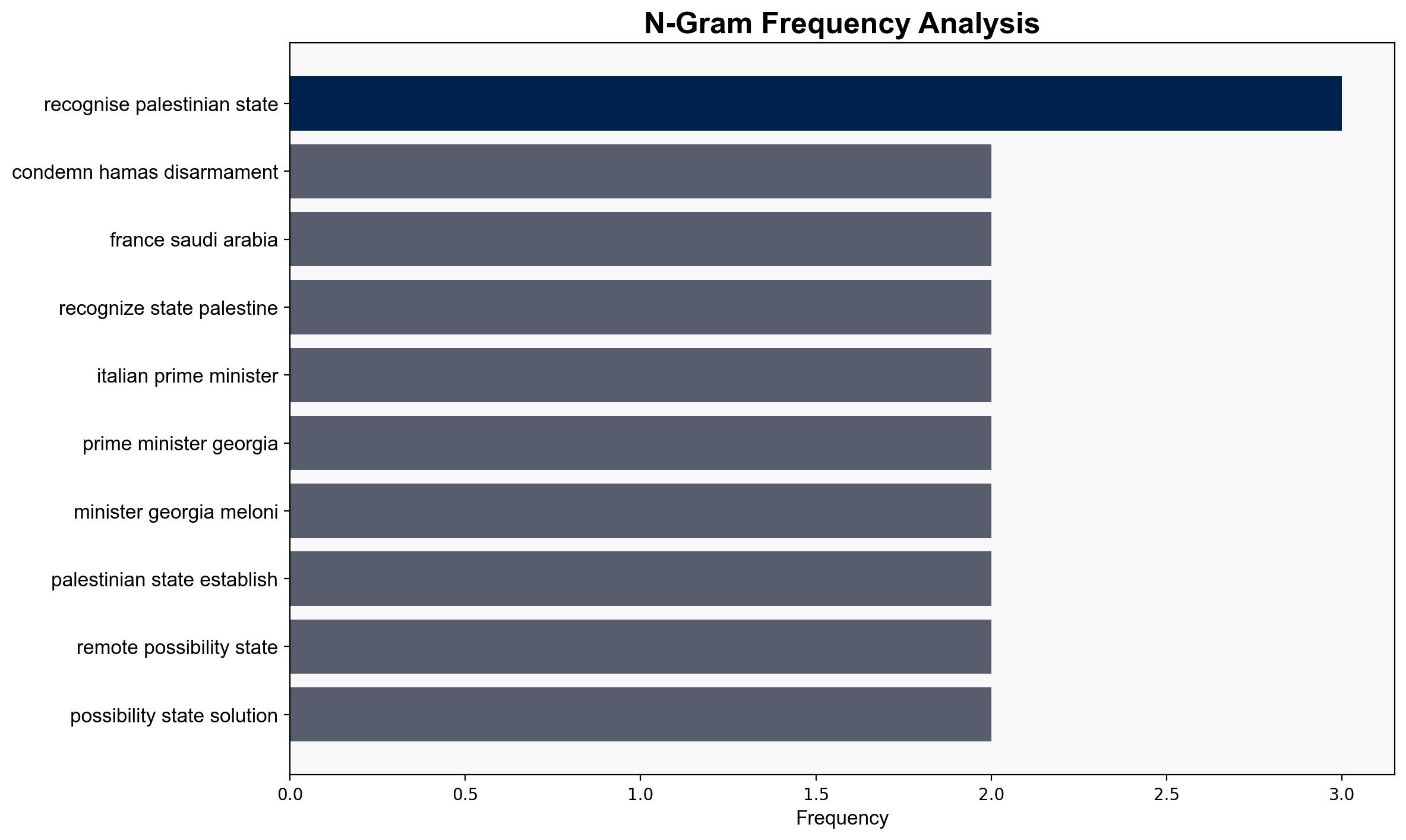French official tells paper Arab countries will condemn Hamas trying to get Palestinian statehood recognized – Japan Today
Published on: 2025-07-26
Intelligence Report: French official tells paper Arab countries will condemn Hamas trying to get Palestinian statehood recognized – Japan Today
1. BLUF (Bottom Line Up Front)
The most supported hypothesis suggests that the French initiative to recognize Palestinian statehood is unlikely to gain broad European support due to geopolitical complexities and internal EU divisions. Confidence Level: Moderate. Recommended action is to monitor EU member states’ positions closely and assess shifts in Arab countries’ diplomatic strategies.
2. Competing Hypotheses
1. **Hypothesis A**: France’s initiative, supported by Saudi Arabia, will successfully lead to a significant number of European countries recognizing Palestinian statehood, thereby increasing diplomatic pressure on Israel.
– **Supporting Evidence**: France’s formal recognition announcement, the involvement of Saudi Arabia, and the planned UN event suggest coordinated diplomatic efforts.
– **Contradictory Evidence**: Opposition from key EU members like Germany and Italy, and the lack of consensus within the EU.
2. **Hypothesis B**: The initiative will face substantial resistance, resulting in limited recognition of Palestinian statehood and minimal impact on the current geopolitical status quo.
– **Supporting Evidence**: Strong opposition from Germany and Italy, internal EU divisions, and the complex geopolitical landscape in the Middle East.
– **Contradictory Evidence**: France’s diplomatic influence and potential support from other EU countries.
3. Key Assumptions and Red Flags
– **Assumptions**: The assumption that Arab countries will uniformly condemn Hamas and support the initiative may overlook internal divisions or differing priorities.
– **Red Flags**: The lack of explicit support from major EU players like Germany and the potential for backlash from Israel and its allies.
– **Blind Spots**: Potential shifts in U.S. policy or unexpected developments in Middle Eastern alliances could alter the diplomatic landscape.
4. Implications and Strategic Risks
– **Geopolitical Risks**: Failure to achieve consensus could weaken EU influence in Middle Eastern peace processes and exacerbate tensions with Israel.
– **Economic Risks**: Potential economic repercussions from strained EU-Israel relations, impacting trade and investment.
– **Psychological Risks**: Increased polarization within the EU and between EU and Middle Eastern countries could lead to diplomatic isolation or conflict escalation.
5. Recommendations and Outlook
- Monitor EU member states’ positions and assess potential shifts in Arab countries’ diplomatic strategies.
- Engage in dialogue with key EU countries to understand their reservations and explore potential compromises.
- Scenario Projections:
- Best Case: Broad EU support leads to increased diplomatic pressure on Israel, advancing peace negotiations.
- Worst Case: Initiative fails, leading to increased EU-Israel tensions and regional instability.
- Most Likely: Limited EU support results in minimal impact on the geopolitical status quo.
6. Key Individuals and Entities
– Jean-Noël Barrot
– Emmanuel Macron
– Georgia Meloni
7. Thematic Tags
national security threats, geopolitical strategy, EU foreign policy, Middle East diplomacy




